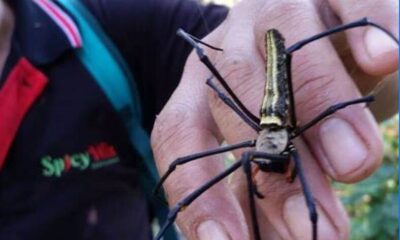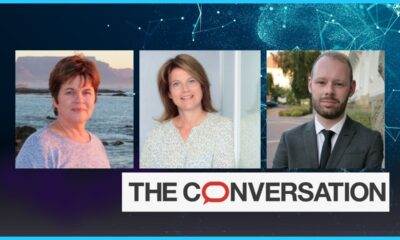Stories in Science Special Series
Science is Sharing Cups of Tea
How does one learn to lead? One learns to lead organically by watching penguins, spending days together at sea, having critical conversations, and sharing cups of tea. Because, science, belief in ourselves and others, and caring should flow and be entwined.

– Heidi Steltzer, PhD –
[su_boxbox title=”About Heidi Steltzer” box_color=”#262733″]Dr. Steltzer is an environmental scientist, explorer, and storyteller. She is an Associate Professor at Fort Lewis College in Colorado, serves on the leadership team for Homeward Bound, and recently founded the Colorado Mountain Center, where scientists invest as much in sharing what they do with the world, as doing science. You can connect with her on twitter @heidimountains.[/su_boxbox]
[su_boxnote note_color=”#F7E2A6″]Take Away Points:
- I and many in science want to help others.
- Incredible insights in science come not just from where we go and what we study, but who we meet.
- Science is for each of us and all of us. Science is sharing cups of tea.[/su_boxnote]
[dropcap]A[/dropcap] just world, an equal world, and a sustainable world are possible. This is my purpose and the journey I have long been on, but only recently understood. I am an environmental scientist and explorer. I have sought opportunities to go places others don’t go. I conduct research in the mountains and Arctic, regions of our planet where climate is rapidly changing.
Why go where others don’t go? To challenge myself. To escape. To be places where anything is possible, even an unlikely demise. To bear witness to our changing Earth. And, most recently to take part in Homeward Bound, journeying with other women to learn to lead and support one another as we learn what this will require of us.

Dr. Heidi Steltzer
The Homeward Bound initiative, a global leadership program for women in science, is a dream turned reality through the vision, generosity, and perseverance of many. Through Homeward Bound, I explored Antarctica, congregated with women in science from around the world, and discovered my purpose.
In science, the greatest acclaim comes from securing research funding and publishing in high impact journals. Yet, my vision for a career in science and my purpose is bigger than this. I want to help others, as do many in science. What is needed to promote this link between science, and decisions and practices that are good for all?
We need to identify common ground, mutual understanding and caring among scientists and non-scientists, among privileged and underprivileged, among people. We must gather, connect, and celebrate together. We must care about the concerns of others, as if they were our own. Yet, In Western culture and science, we often silo people and isolate ourselves. We see differences and create hierarchies. Connecting science with society requires inclusive and holistic approaches.
Half my life ago, the mountains and Arctic became my home. On a whim, I decided to spend a summer living at a remote field station in Colorado, the Rocky Mountain Biological Laboratory, and conducted research on an even more distant mountain hillslope. I was 21 years old and had seldom camped. I dared myself to spend days alone in mountain meadows and even some nights.
Days were easier. I remember lying down in a meadow, sinking into the earth. I peered towards the sky. I saw mostly green. The plants surrounded me. I felt protected by them. At night, I wished for the will to go outside the tent. I’d heard there would be a meteor shower, the Perseids. Far from anyone in a high elevation basin at night, I stayed nestled within my sleeping bag inside my tent where I felt safe.
Five years later, I’d lived for many summers in a mountain cabin, hiked miles above treeline on my own, and earned my PhD. I chose to study alpine tundra ecosystems. I wanted science to influence policy and thought this would depend on political reform. I struggled to write well. And, I disagreed with mentors, because I didn’t believe science was for science’s sake.
Pursuing a career in science has not been simple. I’m not competitive. Power is not important to me. I felt constrained by the behaviors expected and choices available. As a woman and a vanguard, the path to achievement in science was not clear.
I chose to keep exploring. The Arctic called. For two summers, I lived in a tent amidst grizzlies and grassy tussocks next to a braided river in the Western Brooks Range, Alaska. There I studied how mountain watersheds at the northern limit of trees are changing as trees sprout and grow amidst the tussocks. There, I stood atop mountains few have summited, searched for mammoth fossils, and grew more courageous.
Where could I go next? Greenland, Patagonia, and Antarctica have also called. I’ve learned how plants and soils respond as our world warms and winters change, and understood their connection to the air, rivers and sea. Yet, opportunities for the greatest insights have come not from where I could go or what I could study next, but who I would next meet.
This past summer, I went to Alaska to study a rapidly changing region of the sub-Arctic. There, I met a Yupik Eskimo woman, and together we looked for signs of how lakes had drained in her homeland, the Yukon-Kuskokwim Delta. I was willing to walk the tundra with her, sit by lakes that are gone, and understand her perspective on why it matters when these lakes are lost.
She told me Yupik stories of how the lakes were formed and instructed me on what plants to eat. I shared with her technological and systematic approaches for sampling plants, ones perceived as exact, better in Western science. We collected plants where there once were lakes and made tea. I learned that in her culture there is no word for science. The Yupik do not see discovery as separate from spirituality. As we explored the tundra together, science didn’t begin and end. Instead, it flowed.
Similarly, during the Homeward Bound expedition on a ship in Antarctica with seventy-six women in science from around the world, the lessons occurred in unstructured ways. How does one learn to lead? One learns to lead organically by watching penguins, spending days together at sea, having critical conversations, and sharing cups of tea. Because, science, belief in ourselves and others, and caring should flow and be entwined.

Photo by Dr. Steltzer
I’ve been exploring our Earth for over twenty years. I want to share stories about its beauty and its strength, its vulnerability and my own. Moreover, I want to hear others’ tales of discovery and concern, and identify common ground. Together, we can foster greater security for all. Plants and tents can protect us. For a sustainable world, we must protect us.
This is my journey. It began by daring myself to be alone in the wild. Now, my journey requires the courage to listen to and speak with people. On a planet with over seven billion humans, science is essential to manage Earth as our global home. Science is for each of us and all of us. It is a rigorous process and also a spiritual one. Science is about connecting and caring. Science is harvesting plants and sharing cups of tea.
Cover image is by Heidi Steltzer
The CS Media Lab is a Boston-anchored civic science news collective with local, national and global coverage on TV, digital print, and radio through CivicSciTV, CivicSciTimes, and CivicSciRadio. Programs include Questions of the Day, Changemakers, QuickTake, Consider This Next, Stories in Science, Sai Resident Collective and more.

-
 Audio Studio1 month ago
Audio Studio1 month ago“Reading it opened up a whole new world.” Kim Steele on building her company ‘Documentaries Don’t Work’
-
Civic Science Observer1 week ago
‘Science policy’ Google searches spiked in 2025. What does that mean?
-
Civic Science Observer1 month ago
Our developing civic science photojournalism experiment: Photos from 2025
-
Civic Science Observer1 month ago
Together again: Day 1 of the 2025 ASTC conference in black and white
Contact
Menu
Designed with WordPress
























